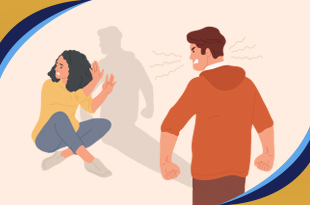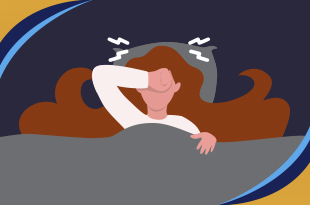We all have done a little bit of people pleasing for one reason or another at some point in our lives. But have you been doing people please a lot more than what is usually considered acceptable? Perhaps, it is something people have been calling people pleasing trauma responses. Well, if you are confused, then we are here to help eliminate this confusion.
People Pleasing as a Trauma Response
We should not label people pleasing as a trauma response as it is more a symptom of the actual symptom. We all experience trauma— and then we also receive an emotional or physical response to a disturbing or distressing event as a result. This result can take different shapes and sizes. We resort to various coping mechanisms to help us process a threat. Some respond angrily or aggressively (fight response), some run away from the situation (flight response), and others respond by simply shutting down (freeze response).

A fourth, more uncommonly known, response to trauma is called fawning, whose major symptom is people-pleasing. The fawn response is a coping mechanism in which individuals develop people-pleasing behaviors to avoid conflict, pacify their abusers, and create a sense of safety around them. So it is not that please-pleasing trauma response per se but moreover, it is a symptom of fawning.
Pete Walker, a known psychotherapist for marriage counseling first coined the word “Fawning” in his seminal book Complex PTSD: From Surviving to Thriving. In it, he describes individuals who respond to trauma with people-pleasing tend to “seek safety by merging with the wishes, needs and demands of others.” This type of behavior comes under the umbrella term of fawning.
Read More: Understanding The Fawn Trauma Response: What It Is And How It Impacts Us?
What is People-Pleasing?
It is closely associated with overly-appeasing behaviors and cycles of codependency but is also sometimes referred to as the “fawning” trauma response. An example of people-pleasing is making decisions to please your wife at whatever cost–this could be anything from choosing the type of house you own to deciding where you will go for dinner based on someone else’s wishes.
It’s a maladaptive way of creating safety around our relationship with others by essentially reenacting the perceived expectations and desires of other people, with whom you would like to continue the bond. So, it is not the actual trauma response but a symptom. How do we refer to it? We can still refer to it as people pleasing trauma response as it is by proxy of fawning indeed a trauma response that thrives as a symptom. What other symptoms are there and how can you spot people-pleasing behavior in affected individuals? Here they are:
- Trouble saying no or setting healthy boundaries in relationships
- Constantly seeking approval or assurances
- Worrying too much about what others think and needs
- Don’t understand their authentic self
- They find it difficult to identify and understand their feelings
- You frequently feel like you’re walking on eggshells because you are afraid of how other people will react
- They try to control others’ decisions in an effort to feel emotionally safe
- Experiencing guilt when they’re upset with others and immediately blaming themselves (sometimes called “self-gaslighting”)
- At the time of a conflict, their initial instinct is to “appease” the angry person
- Ignore their own needs, preferences, thoughts, and feelings to please others
- They shapeshift your needs depending on others’ moods (not just parents or caregivers, but everyone)
Read More: Trauma Brain Vs Normal Brain: How Trauma Affects The Way We Live
The Difference Between Codependency and Please Pleasing Trauma Response
Codependency happens when an affected individual is unable to have a healthy, two-sided relationship is another side effect of fawning rather than a please-pleasing trauma response. It is often learned from family members who are suffering from substance use or a chronic mental health condition. But it can also be confused with the people-pleasing coping mechanism although it shouldn’t be as please pleasing is just one aspect of codependency as it is where people are enmeshed with each other and tend to lose them in the process, often identifying themselves and the other person as a single entity, which is not the case with the usual people-pleasing coping mechanism.
What Kind of Trauma Causes People to be Pleasing To Others?
People-pleasing and trauma go hand in hand. A car crash or a bad break-up can be considered a singular traumatic event but people who display people pleasing as a trauma response usually go through persistent and repeated trauma stemming from triggers like childhood trauma, relational trauma, and complex trauma such as ongoing sexual or partner abuse. Complex trauma can also become collective trauma, where everyone experiences the same persistent trauma over and over again but this time together as a group such as when people did during COVID-19. All of these causes can lead to you having a people-pleasing trauma response.
Read More: Understanding Relational Trauma
Stop Fawning, Stop People Pleasing Trauma Response
There’s a chance you could be trapped in a cycle of fawning and therefore people pleasing trauma response, if you find that you’re too focused on the needs of others or have trouble standing up for yourself. If it is left untreated you will be further drowning in the toxic pattern of people pleasing behavior that is not only bad for your mental health but also worse for your other parts of life such as physical and financial well-being as you will end up in a vicious cycle of extreme cases of people pleasing trauma response, such as codependency. Something like psychotherapy and medication such as antipsychotic medicine can help with treating it.
Wrapping Up
You know the story behind the people pleasing trauma response, and what are the associated symptoms, and how it can be treated. Untreated trauma can also lead to serious mental health consequences, including an increased risk of depression, anxiety, and post-traumatic stress disorder (PTSD), therefore it is compulsory to get treatment as soon as possible. For this, Orange Coast Psychiatry is at your service as it can help you treat mental issues such as Trauma, Depression, Anxiety, MDD, Specific Phobia, or Acute Stress.















